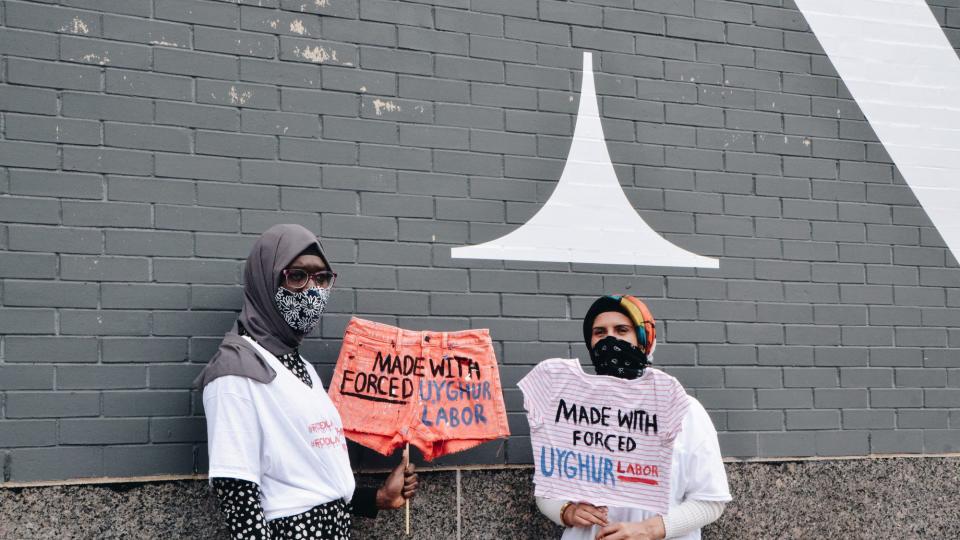Models Protested Against Forced Labor in Fashion Outside of a NFYW Venue

The use of abusive labor in the fashion industry is a pervasive problem that has been ignored for decades. While many often associate fast-fashion with these practices, it's something that happens throughout the fashion industry because of the way materials are sourced. From the cotton used to make T-shirts, to the button on a pair of shorts, any item of clothing in your closet may have been made through forced labor.
As a result of these continuing issues, a group of models and activists have come together to call attention to the subject as New York Fashion Week kicks off. On Sunday night, the Model Alliance and Free Uyghur Now staged a protest outside of Spring Studios in New York City, which is where many shows are taking place. They called attention to how the fashion industry has allegedly been profiting off of forced labor from the Uyghur people of China, an ethnic minority.
According to the U.S. Department of State, apparel brands source millions of tons of cotton and yarn from the Uyghur Region, where the people are "under threat of penalties, such as solitary confinement." The department also adds that "working conditions are harsh with long hours, poor food quality, and little to no pay."
During a press conference, protesters held signs made from garments with the words "made with forced Uyghur labor." There was also a catwalk where models wore shirts with red ribbons in solidarity.
"As justice-oriented students, we refuse to be silent and complicit in the CCP's genocide of the Uyghurs," Mosaab Sadeia, Political Lead of Free Uyghur Now said. "Several companies utilize supply chains that rely on forced Uyghur labor, profiting off their suffering. Today we hope to center this issue at the first show of New York Fashion Week."

RELATED: Some Fashion Brands That Are Making PPE Aren't Providing It for Garment Workers
"Thanks to Uyghur model Merdan Ghappar, who spent 18 days shackled in a labor camp where he filmed himself handcuffed in a dirty room, we can no longer deny the reality of genocide in fashion's global supply chain," Sara Ziff, Executive Director of the Model Alliance explained. "The Model Alliance is calling on all the designers showing at Fashion Week to speak beyond the craft and creativity of your work, and to the underlying conditions of your source material: are you profiting off the oppression of a whole people?"
Fashion week looks a lot different this year due to coronavirus restrictions, causing shows to go digital. Though it's certainly a strange time for the industry, it is a really good time for brands, shoppers, and people who work in fashion to take a step back and look at how the cycle of constantly needing, new and better clothing has been impacting workers.
If you want to get involved and demand that brands stop using forced labor, you can donate and sign the petition here.

